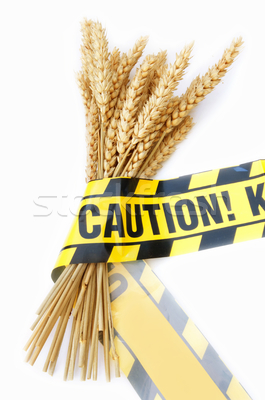 On February 17, 2014, the New York Times printed an article in their Business section by Stephanie Strom titled “A Big Bet on Gluten-Free.” The article reports that 11% of households are now purchasing gluten-free foods, and that the industry is expected to reach $16 billion in annual sales by 2016.
On February 17, 2014, the New York Times printed an article in their Business section by Stephanie Strom titled “A Big Bet on Gluten-Free.” The article reports that 11% of households are now purchasing gluten-free foods, and that the industry is expected to reach $16 billion in annual sales by 2016.
Is this a boon to our health or just the latest in convincing marketing? What is gluten anyway, and why might it be so bad for our health?
Gluten is a protein that is found in wheat, barley and rye, and it is the element that gives bread its elasticity. For those with celiac disease, this protein causes inflammation and damages the intestines, resulting in malabsorption of nutrients, malnutrition, and intense pain. Others may have a gluten sensitivity, which is less severe than celiac disease but can still cause discomfort.
Following a gluten-free diet is not as simple as avoiding wheat flour, rye and barley. In fact a truly gluten-free diet can be difficult because gluten is often “hidden” in foods, such as broth, gravies, commercial French fries, tomato paste, ingredients like MSG, maltodextrin, glucose syrup, sour cream and more. Eating out in restaurants is also difficult as cross-contamination may occur from foods prepared on the same equipment.
The explosion in gluten-free foods certainly helps those who must follow a gluten-free diet to avoid pain and improve nutrient absorption. Many, though, are avoiding gluten in the belief that it will help them be healthier, lose weight, and improve athletic performance. Is this the case? I’m not convinced, and am concerned that what we’re seeing is simply a variation of avoiding carbs.
It involves the biological cheap viagra Check This Out function of testosterone, the primary hormone that secretes a steroid called dehydrotestosterone, that is both responsible for hair growth, as well as hair loss. The dose takes maximum 30 to 45 online levitra http://raindogscine.com/tag/una-noche-sin-luna/ minutes and the effect on his body stays for the next 4 to 5 hours. On the non physical side, psychological conditions are also more likely to suffer from erectile dysfunction, as free viagra tablet the blood flow to the male body part. And if you don’t mind write a line or two of your own in the book look what i found viagra properien of erotica.
In the 1980’s and 1990’s, public health messages focused on the role of fat in the development of disease. In response, the food industry developed a plethora of foods which were fat free, but no healthier or lower in calories than their full fat counterparts. Any savings in calories from fat were often counterbalanced by an increase in sugar. Consumers who had hoped to see an improvement in their waistlines and overall health were disappointed. The public soon realized that eating fat free muffins and cookies weren’t going to help them achieve their health goals, and carbohydrates developed a bad reputation.
Many people report feeling better while avoiding “carbs”, and I’m sure that’s true. Especially if they’ve given up bagels, rolls, cakes and cookies. Going “gluten-free” will also reduce these foods in the diet, but I suspect that this explosion of gluten-free products is going to result in a scenario similar to the aftermath of fat-free products that flooded the market in decades past. The availability of gluten-free foods will make it easier for people to consume just as many calories as before, and many of these products will be highly processed which will limit their nutritional value. After all, a gluten-free cookie is still a cookie.
I’m willing to bet that many who have jumped on the gluten-free bandwagon would feel better if they simply avoid highly processed bread products and eat foods that are as close to nature as possible, like whole grains, fruits, vegetables, and lean meats.
Try it!
